What's New
Displaying results 1951 - 1960 of 4052
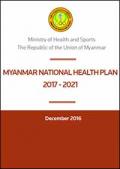
Resource | Publications,
The formulation of the National Health Plan 2017-2021 presents a unique opportunity to outline a new path for the health system that will help the country move towards Universal Health Coverage in an equitable, effective and efficient manner.
This Plan differs from previous National Health Plans in both its formulation process and scope. In the formulation process, a wide range of stakeholders, like-minded organizations and development partners were actively involved. Features of the Plan that are noteworthy include: its focus on ensuring access to essential health services for the entire population; its emphasis on primary health care delivered at township level and below; its consideration for involvement of healthcare providers outside Ministry of Health and Sports; its switch from top-down planning to a more inclusive bottom-up approach; and its recognition of the importance of health systems strengthening from all perspectives.
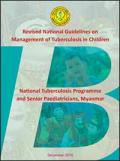
Resource | Guidelines,
Tuberculosis (TB) is a preventable and curable disease, but 1 million children suffer from TB and 210,000 children die of the disease worldwide in 2015. TB is a major challenge to public health in Myanmar. It is, in a sense, a ubiquitous disease, affecting all sections of the society and all age groups. It is, therefore, important to ensure equitable access to care of international standards for all children with TB.
This guideline was first developed in 2007 but further updated in 2012 and 2016 to ensure the use of the latest evidence-based international recommendations on childhood TB. The guidelines will fill the gaps in a systematic approach to TB in children and will help to achieve an internationally recommended standard of care at all levels of the health system in Myanmar.
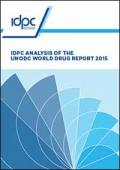
Resource | Publications,
As per usual, the World Drug Report of the United Nations Office on Drugs and Crime (UNODC or Office) for 2015 contains a great deal of useful data on the global drug situation. In keeping with a trend that has been apparent for some years, the tone is moderate and there is relatively little political content. This is especially valuable and important in the approach to the 2016 United Nations General Assembly Special Session (UNGASS) on drugs. In addition, the Report acknowledges to a greater extent than ever before the depth, uncertainty and complexity of the ‘world drug problem’, as well as the ongoing provisionality of its own analyses. Moreover, it is impressively transparent regarding the construction of the data sets utilised in reporting and analysing its domain of inquiry.
Within the following pages we aim to provide an overview of the data and topics presented in, as well as the key themes emerging from, the World Drug Report 2015. As is the norm, where appropriate we will offer critical analysis of and comment on all three, including a full discussion of thematic chapter two that this year focuses on alternative development.
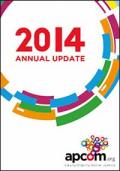
Resource | Publications,
Founded in 2007, the Asia Pacific Coalition on Male Sexual Health (APCOM) is a coalition of governments, UN partners, non-profits, academics and community- based organisations concerned with improving the sexual health and human rights of men who have sex with men and transgender people in the Asia and the Pacific Region.
This report showcases the activities of the past 12 months of 2014, and how APCOM has been actively engaging with national governments, in particular with policy makers and law enforcers, to create a supportive legal environment for MSM and transgender people in order for them to have access to relevant and appropriate sexual health services, and be freed from structural barriers like criminalisation, stigmatisation and discrimination.

Resource | Reviews and Snapshots,
The country snapshot prepared by UNAIDS Regional Support Team for Asia and the Pacific and AIDS Data Hub provides information on the HIV epidemic and response in Fiji country.

Resource | Publications,
The Strategic Plan outlines how, in five years, Global Network of Sex Work Projects (NSWP) will build on its significant achievements and lessons to date, while also strengthening critical areas of its work and responding to a changing and challenging environment. The Strategic Plan is the result of extensive consultation among NSWP’s members and other stakeholders. This included a comprehensive Strategic Review of the network’s strengths and weaknesses in 2010–15.
The Monitoring and Evaluation Framework explains how NSWP will reflect on and learn from its work in 2016–20. It provides a means for the network to assess and report on its concrete results and progress – with indicators by which to measure outputs and outcomes. The Framework also outlines how NSWP will demonstrate the impact of its work – through a series of analytical case studies that show how the network’s Theory of Change works in practice and brings positive changes to the lives of sex workers around the world.
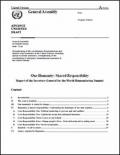
Resource | Publications,
On 9 February 2016 the United Nations Secretary-General Ban Ki-moon launches his report for the World Humanitarian Summit, taking place in Istanbul on 23 and 24 May 2016. The Secretary-General’s report emphasizes the urgency and timeliness of the Summit, given the level of challenges facing the international community and the human suffering witnessed today. The Secretary-General calls upon Member States, the United Nations and humanitarian organizations and other relevant stakeholders to accept and act upon five core responsibilities to deliver for humanity and puts forward his Agenda for Humanity that outlines the key actions and strategic shifts necessary to deliver on them.
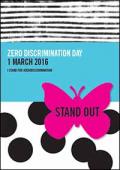
Resource | Publications,
Zero Discrimination Day on 1 March is an opportunity to celebrate everyone’s right to live a full and productive life with dignity—no matter what they look like, where they come from or whom they love. Let’s come together to end discrimination and celebrate diversity, tolerance and inclusion.
On Zero Discrimination Day 2016, celebrate individuality and stand out. Embrace the diversity that exists around us, understand and accept people’s differences, open minds and respect and support one another.

Resource | Publications,
To address this lack of data and enhance advocacy efforts, Médecins du Monde (MdM) and Treatment Action Group (TAG) have launched mapCrowd, a new online crowdsourcing platform designed to gather and publicize the most up-to-date country-level information on hepatitis C virus (HCV). Providing free access to national, regional, and international data, mapCrowd allows users to draw visual comparisons between countries, using interactive graphs, tables, and maps.
This report highlights some of the key findings from our preliminary analysis of information from mapCrowd. We believe that mapCrowd can be a powerful resource, informing advocacy to improve access to prevention, diagnostics, and treatment worldwide, and ultimately to eliminate HCV.
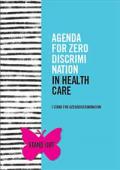
Resource | Publications,
People around the world face barriers to accessing quality health care and enjoying the highest attainable standard of health. Why this occurs varies between countries and communities, but some barriers are present everywhere. These include the various forms of discrimination faced by people who are marginalized, stigmatized, criminalized and otherwise mistreated because of their gender, nationality, age, disability, ethnic origin, sexual orientation, religion, language, socioeconomic status, or HIV or other health status, or because of selling sex, using drugs and/or living in prison.





